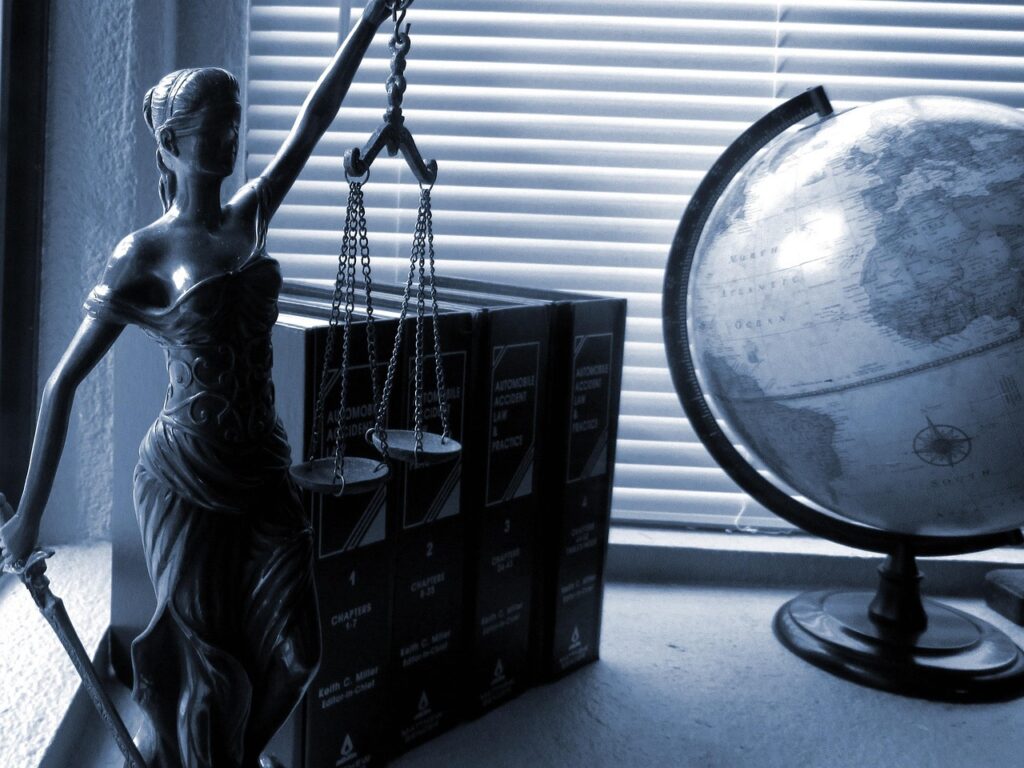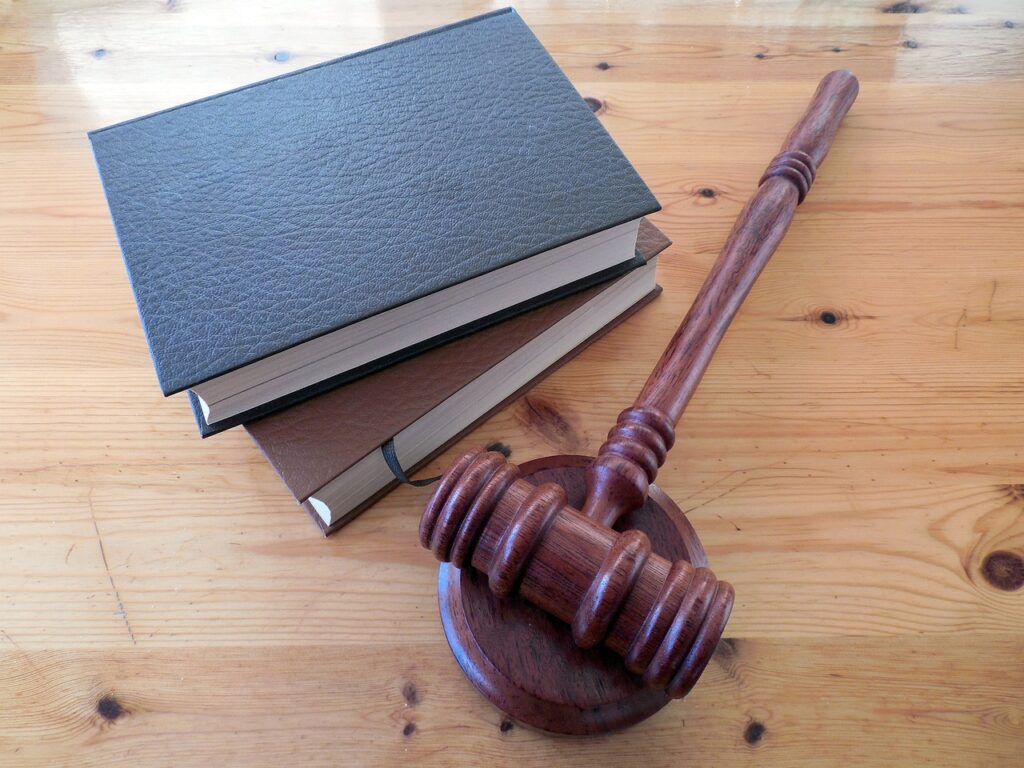Published on: 10th October 2025
Authored by: Falguni Gupta
Ambedkar Law College
Citation – First Appeal No. 118 of 2023, Bombay High Court, Nagpur Bench, Judgment dated 26 June 2025
Court – High Court of Judicature at Bombay, Nagpur Bench
Bench – Hon’ble Mrs. M. S. Jawalkar, J. and Hon’ble Pravin S. Patil, J.
Date of Judgment – June 26, 2025
Relevant Statutes/Key Provisions –
– Section 31, Maharashtra Public Trusts Act, 1950 (MPTA)
– Order 7 Rule 11(d), Code of Civil Procedure, 1908 (CPC)
– Sections 19, 20, 21, 22A, 51, 70, 70-A, MPTA
– Religious Societies Act, 1880
Brief Facts –
The Methodist Episcopal Church (“Appellants”) was established in Nagpur in 1870 by American evangelist William Taylor. The Church acquired land in Civil Lines, Nagpur, through a Sale Deed No. 20 in 1886 and leased 45 acres of Nazul land at Wadpakad, Indora, and Jaripatka in 1924. The Church’s property and affairs were originally managed under the Religious Societies Act, 1880.
In 1942-43, the Executive Board of Methodist Church in Southern Asia (later renamed Methodist Church in India, “Respondent No. 1”) registered itself under the Societies Registration Act, 1860, (Reg. No. 1155) and in 1954, under the Bombay Public Trusts Act (now Maharashtra Public Trusts Act, 1950), as Trust No. F-405 (Maharashtra).
A pivotal event occurred in 1966, when the Secretary of Executive Board filed Change Report No. 2974/1965 to add Appellant Church’s properties to its Schedule. The Assistant Charity Commissioner, Bombay, added the Appellants’ property to Respondent No. 1’s Schedule-1. The Appellants allege this was done clandestinely, without proper inquiry or notice, and in violation of natural justice.
In 1982, the Executive Board was renamed as the “Executive Board of Methodist Church in India” via Change Report No. 1108/82. In 2002, Respondent No. 1 obtained permission from the Joint Charity Commissioner to sell 9702 sq.m. of the land to Ind Agro Synergy Ltd. (Respondent No. 4) and sale deeds were executed/registered for 8367 sq.m. of land to associated parties (Respondents 4-9). The sale was executed in 2004, the Assistant Charity Commissioner deleted the land (9702 sq.m.) from Schedule-1 without hearing Appellant, though only 8367 sq.m. was actually sold.
In 2007, notice issued by late Miss Leelavati Dubey, the Appellants convened a meeting and passed a resolution to register as a public trust under the MPTA and elect 11 trustees. On 02.08.2007, the Appellant Church filed an application for registration and also instituted Special Civil Suit No. 1010/2007 in front of Civil Judge, Sr. Div., Nagpur seeking possession, declaration, cancellation of sale deeds, and restoration of the disputed land.
In 2008, the Deputy Charity Commissioner in Nagpur partly allowed the Methodist Church’s application to register it as a public trust. The Church was given a certificate (called Certificate “E”) under section 19(1) of MPTA. Some respondents filed a revision application in 2009 objecting it. In 2019, the Joint Charity Commissioner allowed the revision, cancelled the Church’s registration, and set aside the earlier order that had granted registration.
The Appellants challenged the cancellation of their trust registration by filing a writ petition (No. 7686/2019) in the High Court. On 29 October 2021, the High Court dismissed their petition, stating that the Church had no property (no “corpus”) in its name. The Appellants then went to the Supreme Court (SLP No. 21222/2021), but the Supreme Court also dismissed their appeal on 24 January 2022. They filed a review petition, but it was dismissed on 22 March 2022. This rejection was upheld by the High Court in 2021 and Supreme Court in 2022.
Respondents objected, arguing that the Appellants were not a registered public trust and thus could not maintain the suit. The Appellants argued that the Trial Court misunderstood Section 31 of the Maharashtra Public Trusts Act (MPTA). They said Section 31 only stops the court from making a final decision on the suit, not from keeping the suit pending.
The Learned Trial Court dismissed the Appellants’ suit in July 2022, under Order 7 Rule 11(d) CPC, holding it barred by section 31 of the Maharashtra Public Trusts Act, stating that only registered public trusts can have their property disputes heard in court. The present appeal challenges that dismissal, arguing that their suit should at least be kept pending until the trust registration issue was finally resolved.
Issues Involved –
- Whether a civil suit filed by an unregistered public trust for property can be heard and decided by the civil court in view of Section 31 of the MPTA.
- Whether the bar under Section 31 MPTA applies only to hearing/deciding the suit or also to filing/maintaining it.
- Whether the Appellants’ trust registration and property ownership disputes, pending before the Charity Commissioner, affect the maintainability of the suit.
Arguments –
Appellants’ Arguments –
- Interpretation of Section 31 MPTA: The Appellants argued that Section 31 only bars the court from hearing or deciding a suit, not from filing or keeping it pending. As such, the suit should be kept in abeyance until trust registration or property ownership is resolved.
- Pending Proceedings: The property ownership and trust registration issues are still pending before the Joint Charity Commissioner (Rev. App. No. 4/2013). If the Appellants succeed, the property will be added to their trust schedule, providing the required corpus for registration.
- The Appellants relied on Public Trust Shri Geeta Satsang Bhawan v. Nand Lal (2018) 12 SCC 222, where the Supreme Court interpreted a similar provision (Section 29 of the Rajasthan Public Trust Act) as a bar to hearing, not filing.
- Finality of Registration: The Appellants contended that the cancellation of registration of the Trust cannot be said to have attained finality, as the inquiry is still pending.
- Equity and Justice: The Appellants emphasized the historical injustice and the need to allow their claim to be adjudicated on merits, given the long-standing nature of their association with the property.
Respondent’s Arguments
- Statutory Bar: The Respondents argued that Section 31 MPTA creates an absolute bar to the hearing or decision of suits by unregistered public trusts. Since the Appellants are not registered and have no property in their name, the suit is not maintainable.
- Ownership and Schedule Entry: The property has been in the name of Respondent No. 1 in the trust schedule since 1966. The sale of the property was lawfully permitted and executed; entries were made and deleted in the trust schedule accordingly.
- Delay and Acquiescence: The Appellants never challenged the trust schedule entries or the sale in any forum for years, indicating acquiescence.
- No Trust Document: There is no document creating a trust as defined under Section 2(13) of the MPTA. The Appellants’ claim is based on resolutions and not on any formal trust deed.
- Distinguishing Precedent: The Respondents distinguished the Supreme Court’s decision in Geeta Satsang Bhawan, arguing that in the present case, the trust registration had been finally rejected and there was no property in the Appellants’ name.
Judgment –
The High Court, after reviewing the facts, submissions, and legal provisions, upheld the Trial Court’s dismissal of the suit. The key findings were:
- The Appellants are not a registered public trust under the MPTA.
- There is no immovable property standing in the name of the Appellants in the trust schedule.
- Section 31 MPTA creates a clear bar that courts cannot hear or decide suits by unregistered public trusts. The bar is not merely procedural but goes to the root of maintainability.
- The Appellants’ argument that the suit should be kept pending was rejected, as their registration attempts had failed up to the Supreme Court. The pending inquiry before the Charity Commissioner did not alter the legal position.
- The Court distinguished Geeta Satsang Bhawan, noting that in that case, registration was possible, whereas here, the Appellants’ registration had been conclusively rejected.
Ratio Decidendi –
Section 31 of the Maharashtra Public Trusts Act, 1950, bars the hearing and decision of any suit by or on behalf of an unregistered public trust.
Where the trust is not registered and has no property in its name, the suit is not maintainable and must be rejected at the threshold. The bar under Section 31 is absolute and not subject to exceptions based on pending proceedings or equitable considerations.
Final Decision
- The Appeal is dismissed.
- The order and decree of the Learned Trial Court (dated 16.07.2022) rejecting Special Civil Suit No. 1010/2007 is upheld. The suit filed by the Appellant is not maintainable under section 31 of MPTA.
- There shall be no order as to costs.
Conclusion –
This case demonstrates the strict application of procedural and statutory bars in public trust litigation. The High Court upheld the Trial Court’s rejection of the suit under Order 7 Rule 11(d) CPC, as the plaint was barred by Section 31 of the Maharashtra Public Trusts Act, 1950. Since the Appellants were not a registered public trust and had no property in their name, the law expressly prohibited the court from hearing or deciding their claim.




